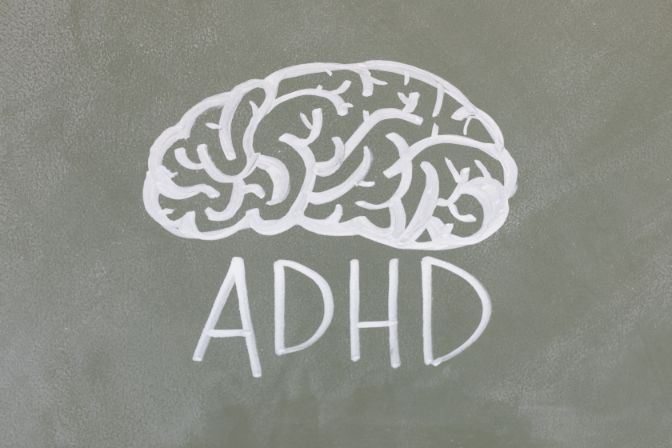Recognizing the Signs of ADHD in Teens
Understanding the signs of ADHD in teens is crucial for early intervention and effective management. ADHD in teenagers, particularly ADHD in teen boys, can significantly impact their lives academically, socially, and emotionally. Here, we explore the key indicators of ADHD in teens and the steps parents, teachers, and caregivers can take to support them.
1. Inattention
One of the hallmark symptoms of ADHD in teens is inattention, which can manifest in various ways:
- » Difficulty Sustaining Attention: Teens with ADHD often struggle to focus on tasks or activities, especially those requiring prolonged mental effort, such as homework or studying for exams.
- » Careless Mistakes: They may frequently make careless errors in schoolwork or other activities due to inattention to detail.
- » Disorganization: They often have trouble organizing tasks and belongings. Their backpacks, lockers, or bedrooms may be consistently messy and cluttered.
- » Forgetfulness: Forgetting daily tasks, such as turning in assignments or remembering appointments, is common.
2. Hyperactivity
Hyperactivity symptoms in ADHD in teens can differ from those seen in younger children. Some signs include:
- » Fidgeting and Restlessness: Teens with ADHD may be unable to sit still, often fidgeting with their hands or feet or squirming in their seats.
- » Inability to Stay Seated: They may have difficulty remaining seated in situations where it is expected, such as in class or during meals.
- » Excessive Talking: They might talk excessively and interrupt others frequently.

3. Impulsivity
Impulsivity can significantly affect a teenager’s decision-making and social interactions:
- » Impulsive Decisions: Teens with ADHD may act without thinking, leading to risky behaviors such as substance abuse, unsafe driving, or unprotected sex.
- » Interrupting: They often interrupt conversations or intrude on others’ activities.
- » Difficulty Waiting: They may struggle to wait their turn in games or queues.
4. Academic Challenges
ADHD in teens often makes academic life particularly challenging:
- » Poor Academic Performance: Despite having average or above-average intelligence, teens with ADHD may have lower grades due to their inability to focus and complete assignments.
- » Procrastination: They often procrastinate, leading to rushed and incomplete work.
- » Underachievement: They might underachieve relative to their potential, causing frustration and low self-esteem.
5. Social and Emotional Issues
The social and emotional impact of ADHD in teen boys and girls should not be underestimated:
- » Difficulty Making Friends: Teens with ADHD might struggle with social interactions, leading to difficulties in making and keeping friends.
- » Emotional Outbursts: They may experience intense emotions and have difficulty regulating them, resulting in outbursts or mood swings.
- » Low Self-Esteem: Persistent challenges and negative feedback can lead to feelings of inadequacy and low self-worth.

6. Co-Existing Conditions
It is not uncommon for ADHD in teens to be accompanied by co-existing conditions:
- » Anxiety and Depression: Many teens with ADHD also experience anxiety or depression, which can complicate diagnosis and treatment.
- » Learning Disabilities: Specific learning disabilities, such as dyslexia, may also be present, requiring tailored educational support.
What to Do if You Suspect ADHD
If you notice signs of ADHD in your teen, especially ADHD in teen boys, it’s essential to seek professional evaluation. Here are the steps to take:
- » Consult a Healthcare Provider: Start with your family doctor, who can refer you to a specialist, such as a psychologist or psychiatrist, for a comprehensive evaluation.
- » Educational Support: Work with your teen’s school to develop an Individualized Education Plan (IEP) or 504 Plan to address their educational needs.
- » Behavioral Therapy: Cognitive-behavioral therapy (CBT) can help teens develop coping strategies and organizational skills.
- » Medication: Sometimes, medication may be prescribed to help manage symptoms.
Supporting Your Teen
Parents, teachers, and caregivers play a vital role in supporting teens with ADHD:
- » Encourage Structure: Help your teen create a structured routine to manage their time and tasks effectively.
- » Promote Healthy Habits: Encourage regular physical activity, healthy eating, and adequate sleep, all of which can positively impact ADHD symptoms.
- » Foster Open Communication: Maintain open and supportive communication with your teen, offering understanding and patience as they navigate their challenges.
Recognizing the signs of ADHD in teens and taking appropriate action can significantly improve their quality of life and help them reach their full potential. Early intervention and ongoing support are crucial to managing ADHD effectively.

Teen Challenge Adventure Ranch Supports Teens with ADHD
Teen Challenge Adventure Ranch is a Christ-centered, dual-diagnosis treatment facility dedicated to helping teen boys ages 14-17 who struggle with ADHD or ADD. Located in Northwest Arkansas, this long-term residential therapy program offers effective adventure-based therapy with a trauma-informed approach in a Christian environment. The ADHD treatment program at Teen Challenge Adventure Ranch focuses on helping boys understand their diagnosis and develop healthy coping strategies. The goal is to enable them to function without uncontrolled, aggressive outbursts, substance abuse, anxiety, depression, or other maladaptive behaviors. By combining adventure therapy with a supportive, faith-based community, Teen Challenge Adventure Ranch provides a comprehensive and nurturing environment where teens can thrive and develop essential life skills.



